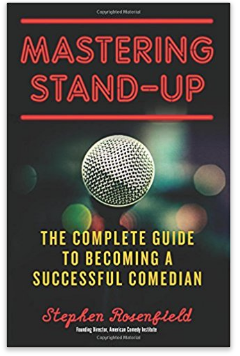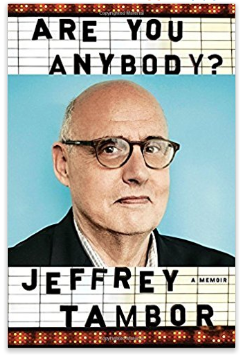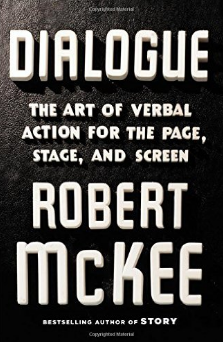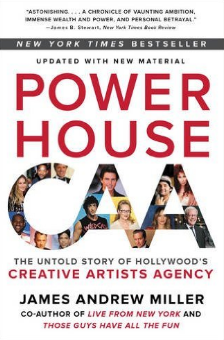I recently read “The Warner Loughlin Technique” by Warner Loughlin. Below are the quotes I found most interesting. If you like them, buy the book here.
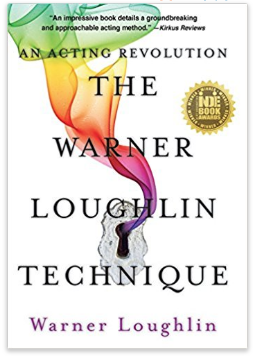 “Master the character first, and then put the character in the circumstances of the scene.” (19)
“Master the character first, and then put the character in the circumstances of the scene.” (19)
“That is how you make a strong choice. Give it an emotional reason to exist while making sure that it is both appropriate to the character and the story.” (57)
“Unless the screenplay lays out for you the events that happened in the character’s life, you will want to invent them. You can’t truly know someone unless you know their ‘life story,’ so to speak.” (57)
“The darker the material and characters are, the darker your choices can be… Let the life events you choose be dictated by the material.” (63)
“Choose excellence, vow to practice it consistently, and soon excellence becomes habit.” (88)
“Watch your thoughts; they become words. Watch your words; they become actions. Watch your actions; they become habits. Watch your habits; they become character. Watch your character; it becomes your destiny.” -Frank Outlaw (91)
“To oversimplify: The Base Human Emotion is an emotion caused by an event that leads the character to perceive the world in a certain way. When he perceives the world in a certain way, he then reacts to the world in a certain way.” (97)
“The interesting thing about Base Human Emotions in characters and in real life relationships is that people will often choose a partner who soothes their Base Human Emotion.” (98)
“Here is where a child will make a choice. He will choose a behavior in order to cope with the situation and his emotions. Will he choose to stay away from those awful bullies and bury his head in the books so that at least the teacher will like him? Or will he choose to be the class cut-up so the other kids will accept him? Choosing a behavior determines a path. One of these chosen paths could produce a world-class physicist. The other might produce a stand-up comic.” (100)
“A character’s behavior, particularly patterns of behavior, are the best indicators of what the Base Human Emotion might be.” (103)
“When your imagination is in full gear, you are drawing from an infinite well, as it were. When we limit ourselves to our own singular experiences, we draw from a finite and limited well.” (105)
“Create events and scenarios, placing yourself – as the character – n this moment and experiencing this event in the present time. Avoid creating the event as if it’s a character memory. Instead, you, as the character, are living in this moment, experiencing the event as it unfolds and all the subsequent emotions that arise from it. You’re not watching this movie – you’re in it.” (106)
“To begin creating the character’s world, start out small and expand. I find it helpful to start out imagining an object that the child is holding in his/her hand. Then my imagination will justify why “I” am holding this object at this particular time.” (110)
“Create for your character fresh, new and imaginative details that are not exact copies of the details from your personal life experiences.” (118)
“Don’t command yourself to “feel” something. Just live in the Emotion with Detail, moment to moment. It’s only then that you will feel. Don’t try to chase the emotion. Anything you chase flies away.” (126)
“We never want to “play at the scene.” Instead, we are able to create nuance and texture in a character by building the life, experiencing the life and then dropping this fully formed life into the circumstances of the scene. Just like real life works.” (193)
“For auditions, read the scene as if you have all the time in the world and are not in fact panicking. Read it from an objective viewpoint, avoiding at all costs thinking about how you’re going to play it. I know that’s hard, but you can do it. Determine what kind of scene this is and what is central to making it work. Is it a relationship scene? A break-up scene? A fight scene? A deep revelation? What’s the relationship that lies at the core of this scene? Is it with a lover? Brother/sister? Parent? Friend? Take time to do some quick Hows of Behavior to determine specific character traits, paying attention to patterns of behavior that emerge. From those patterns, quickly pick a Base Human Emotion, and stick with it. Then build a loose and quick Core KNowledge. Create several brief Emotion with Detail events that explore the central elements you’ve identified.” (199)
“For auditions, ask yourself, “Why did casting choose this scene? To show what aspect for the character? What books this job?” Then choose those aspects of the character to focus your limited time on.” (200)
“Find the emotional differences at the top of the scene versus the end of the scene.” (201)
“Remember that when you are acting, you must be thinking character thoughts rather than personal thoughts during the scene.” (201)
“Take care not to memorize your lines before developing your character.” (201)
“When you memorize lines in a rote fashion, without emotional fuel behind them, prior to character exploration, you are forcing your brain to store those lines in the rote memory section of the brain. This is a different section of the brain than the section that stores images, concepts, and memories to which you are emotionally connected.” (201)
“When you anticipate an emotion, chances are you’ll rarely feel it in the moment.” (204)
“In a Prior Instant, you are literally switching off a personal thought, and switching on a character thought. You can’t think two things at the same time. The Prior Instant is comprised of the precise thoughts and exact words the character is thinking in this moment, as if you’ve spoken the thoughts out loud, yet they are silent. I call this exact character thought, in the character’s own words, a “hard” inner monologue.
If you know exactly what your character is thinking, your mind and body will follow. A Prior Instant gets you out of the gate, so to speak, in exactly the way you need. Just make sure you are not anticipating what is about to happen in the scene; the actor knows what is about to take place, but the character does not.” (205)
“Don’t strive for the perfect take. Just be willing to go on the journey of the character.” (208)
“Think a character thought about anything, and you’ll be back in the scene. You cannot be in two places at one time. So choose to be in the character’s mind rather than in your own head beating yourself up. Seeking to have character-related thoughts at all times during your scene is hugely important. If you think it, camera reads it.” (210)
“All of your research and character work should be done before you set foot on the lot or location… having the character deeply inside you allows you to mold, shape and change on a dime according to what your director says… There’s nothing you can’t do if you have a firm grasp of your character.” (212)
“There is no right choice. Simply give the object an emotional reason to exist. This will help ground you in the moment. For example, the ruge is not just a ruge; it’s the rug your beloved dog used to sleep on at the foot of your bed. Or perhaps it was handed down to you when your sister’s room was redecorated; yours wasn’t, and you resent it. When you give objects an emotional reason to exist, they become clearer in your mind. You have made them specific.” (227)
“Walk into that audition room to give something – never to get something.” (227)
“Think of auditions as collaborative meetings.” (227)
“When it comes to homework on your character, it is most important to know how he or she responds to the other characters in the scene and to look for patterns. Is there a type of person that seems to tweak your character’s Base Human Emotion repeatedly? Or perhaps a certain behavior on the part of another character is always a trigger.” (229)
Like the quotes? Buy the book here.

